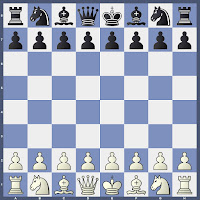Art Happens - a perspective on Bronstein vs Simagin
.jpg)
".... but you are painting for yourself, not for the jury " - Robert Henri Any art, is primarily for self - it is purely an expression of self. Chess is a supreme art and the games and the ideas are primarily an expression of inner self and only such games, played in this spirit, stand the test of time and gives great joy to the onlooker! Do Chess masters leave a legacy for posterity? Yes and no! What will remain as my legacy? Flowers in the spring, The hototogisu in summer, And the crimson leaves of autumn wrote Ryokan - the great Zen poet saint! Yet....time carries innumerable creations as the butterflies and bees carry pollen on their back and polinate the minds of those who come across these creations in future and profoundly impact them! David Bronstein is an artist of the highest order in Chess. The present tense is to denote the immortality of his ideas and creations! A well known masterpiece which has been analysed in depth both in journals at that time and books...

.jpg)
.jpg)
.jpg)